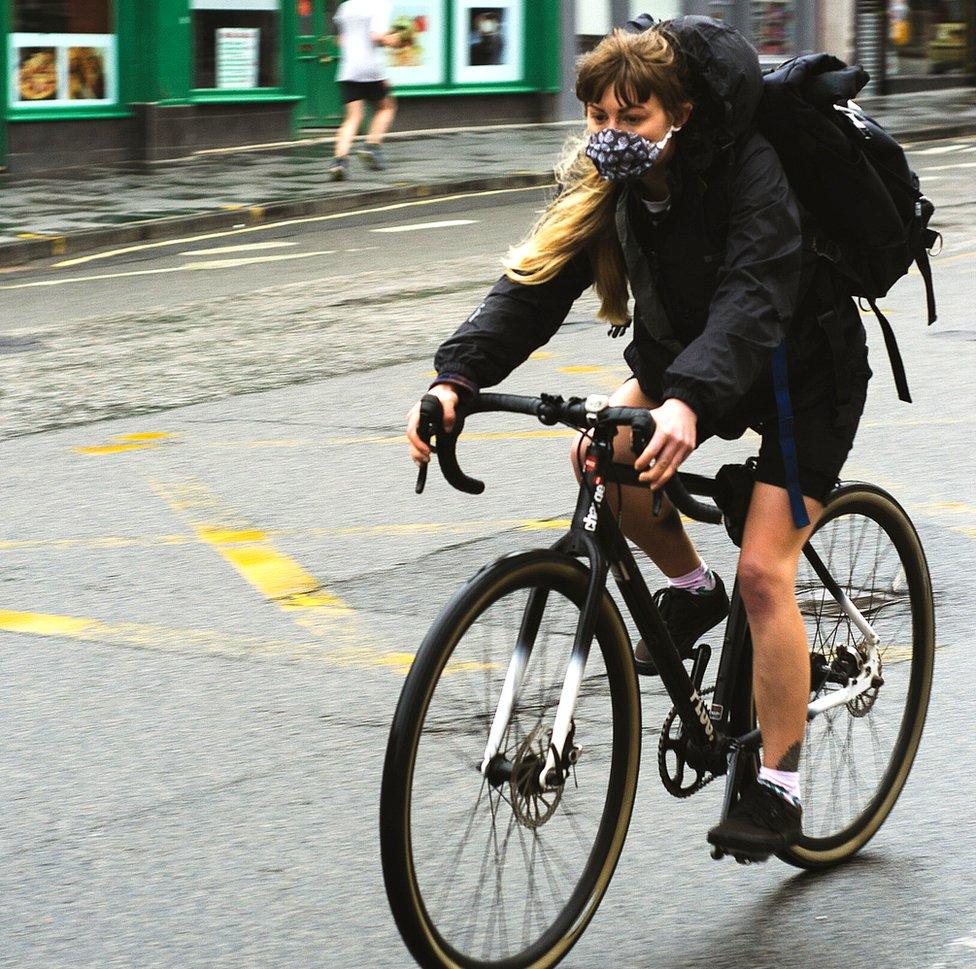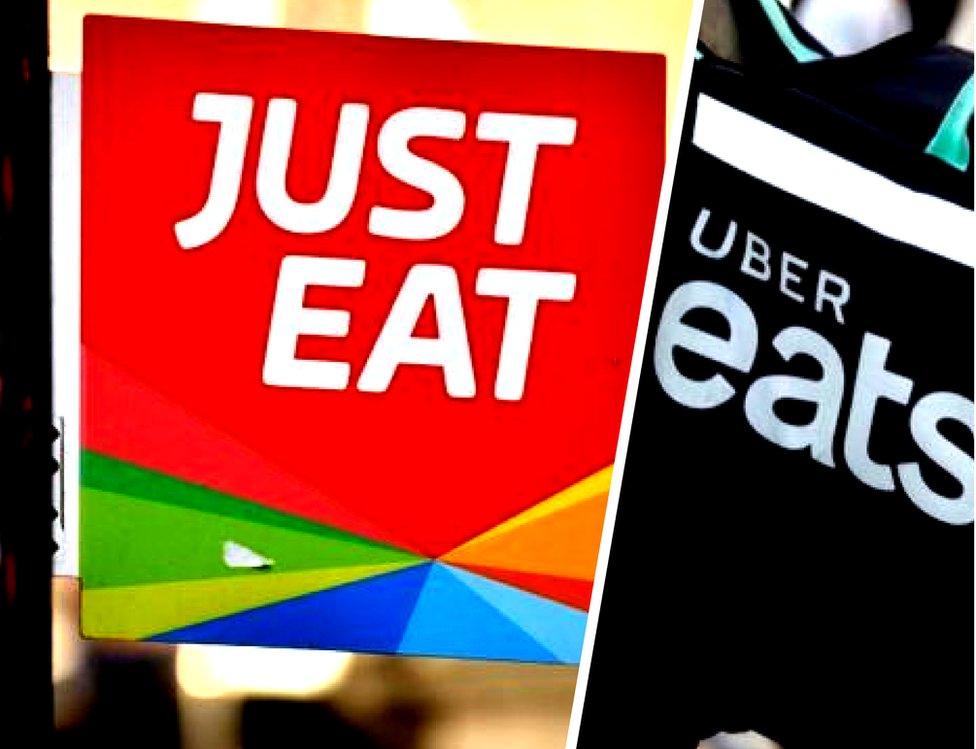Coronavirus: 'We're key workers but no-one's looking after us'
- Published

Alice Barker has seen her earnings take a nosedive
Alice Barker got paid by the hour when she started out as a food delivery cyclist in 2016. Now it's per delivery.
Orders have slumped since the pandemic so the 29-year-old's wages from Uber Eats and Just Eat have taken a nosedive.
"A lot of people assume that we're much busier now, but for a lot of the push bikes, we're really struggling to make ends meet," she told Myles Bonnar on BBC Scotland's Unlocked podcast.
"The demand has just completely floored. A lot of the restaurants are closed so that's had an impact, and I think people are spending more time cooking at home.
"I've been logging on for over 60 hours a week, to get £100. I maybe wasn't even making that at the start of lockdown."
Nowadays, Alice says, even a good week would see her earning not much more than that.
'We are disposable'
"When KFC opened, we were a bit busier, I think I made about £130 that week," she said. "It's really unsustainable. We should not be having to work for that kind of time to make a living.
"These companies have all pushed for us to be classed as key workers. But it's really clear that this is about their interests, they haven't actually done anything to make us feel like we're key workers. We're actually quite disposable.
"It's just this weird feeling that we're key workers but no-one's actually looking after us. It feels like a really odd situation to be in."
Alice said both firms have given her advice on how to deliver in a socially distant way, but that more should be done to help couriers.
Trying not to drink
"They were going to give us some PPE - some masks and hand sanitiser," she said. "I know it's taken weeks for people to even get hold of any.
"And when they do arrive, we're being given single-use masks. How long are we meant to use that safely for?
"Also, with the restaurants, we're not able to just use the bathroom, whether that's to use the toilet or to wash our hands."
Alice, who's from Edinburgh, said that having no access to toilet facilities has led to her trying not to drink water during her shift.
"Which, given the warm weather, is really desperate," she said.
Another change that the lockdown brought was a slump in tips, with people handling money less often and some feeling that handing someone cash was unsafe - although Alice said some customers have found a solution.
"Sometimes people have put a bit of money in an envelope, and just left it on the front step, and maybe left a little note on the app," she said.
"It might just be a couple of quid but just that gesture, it really gives the human side to this."

In a statement, a Just Eat spokesperson said: "We recognise that Covid-19 has brought huge uncertainty for many of the self-employed couriers in our network and have implemented a number of measures to help keep them safe.
"We've rolled out contact-free delivery procedures across our network, are supplying protective equipment to couriers and have asked all restaurants to keep hygiene facilities available to the couriers picking up their orders."
The spokesperson added that the masks they supplied to couriers were reusable.
An Uber Eats spokeswoman said: "The safety of everyone using the Uber Eats app and preventing the spread of Covid-19 is a top priority.
"In the UK, Uber Eats has introduced a number of measures including contactless delivery as well as distributing over one million masks to drivers and couriers and over 50,000 hand sanitisers to couriers using the Uber Eats app."
You can hear more about the impact of lockdown on jobs on BBC Scotland's Unlocked podcast.

40,000 DEATHS: Could they have been prevented?
FACE MASKS: When should you wear one?
TESTING: Who can get a test and how?
WILL I GET PAID IF I CAN'T WORK? The rules on sick pay, wages and time off
